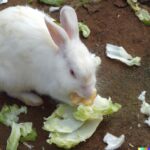Guinea pigs, also known as cavies, are social creatures that love to interact with their kind. If you’re thinking about getting a guinea pig, one question that may come to mind is whether they can live alone. While it is possible for a guinea pig to live alone, it is not ideal for their overall health and well-being. In this article, we’ll explore why guinea pigs need companionship, the risks of solitary living, and how to introduce a new guinea pig to an existing one.
Can a Guinea Pig Live Alone?
The Importance of Companionship for Guinea Pigs
Guinea pigs are highly social animals that thrive in groups. In their natural habitat, they live in herds and spend most of their day interacting with their companions. They communicate with each other through a variety of sounds, such as chirps, purrs, and wheeks, and use body language to express their feelings.
When a guinea pig lives alone, they miss out on these important social interactions. This can lead to boredom, loneliness, and even depression. Without a companion, a guinea pig may become lethargic, lose their appetite, and show signs of stress, such as excessive grooming or self-mutilation.
Risks of Solitary Living
Not only is solitary living detrimental to a guinea pig’s mental health, but it can also have negative effects on their physical health. A lonely guinea pig may become overweight due to lack of exercise or develop digestive problems from not eating enough. They may also be more prone to illnesses and infections due to a weakened immune system.
In addition, a solitary guinea pig is more vulnerable to predators, as they do not have the protection of a herd. Without a companion to watch their back, they may be more anxious and on high alert, which can lead to chronic stress.
Introducing a New Guinea Pig to an Existing One
If you already have a guinea pig and want to introduce a new one, it is important to do so gradually. Guinea pigs are territorial animals and can be aggressive towards new arrivals. To avoid conflict, it is best to keep the new guinea pig in a separate cage for a few days and let them get used to each other’s scent.
Once the guinea pigs seem comfortable with each other, you can introduce them in a neutral space, such as a playpen or a clean area of the floor. Supervise their interactions closely and be prepared to separate them if they become aggressive.
Signs of a Happy Guinea Pig
When guinea pigs are happy and content, they exhibit a variety of positive behaviors. Some signs of a happy guinea pig include:
- Purring or chirping
- Popcorning (jumping up and down)
- Social grooming with their companion
- Relaxed body language, such as lying on their side or back
If you notice any signs of distress, such as teeth chattering or hair standing up, it may be a sign that your guinea pig is unhappy or stressed.
Conclusion
In conclusion, while it is possible for a guinea pig to live alone, it is not recommended for their overall health and well-being. Guinea pigs are social animals that need companionship to thrive. Living alone can lead to boredom, loneliness, and even depression, as well as physical health problems. If you already have a guinea pig and want to introduce a new one, it is important to do so gradually and carefully monitor their interactions to ensure that they get along.
If you are unable to get a second guinea pig, there are other ways to provide companionship for your cavy, such as spending quality time with them each day, providing plenty of toys and activities to keep them occupied, and even setting up a mirror in their cage so that they have a visual companion.
Overall, it is important to prioritize your guinea pig’s social needs to ensure that they live a happy and healthy life.
FAQs
- Can a guinea pig live with other types of animals?
- It is not recommended to keep guinea pigs with other types of animals as they may pose a risk to their safety and well-being.
- How much space does a guinea pig need?
- Guinea pigs need a minimum of 7.5 square feet of living space per pig. However, the more space they have, the better.
- Can a guinea pig be trained to do tricks?
- Yes, guinea pigs can be trained to do simple tricks such as coming when called or standing on their hind legs.
- How often should I clean my guinea pig’s cage?
- It is recommended to clean your guinea pig’s cage at least once a week, or more frequently if necessary.
- How long do guinea pigs typically live?
- Guinea pigs have an average lifespan of 5-7 years, although some can live up to 8 or 9 years with proper care.











